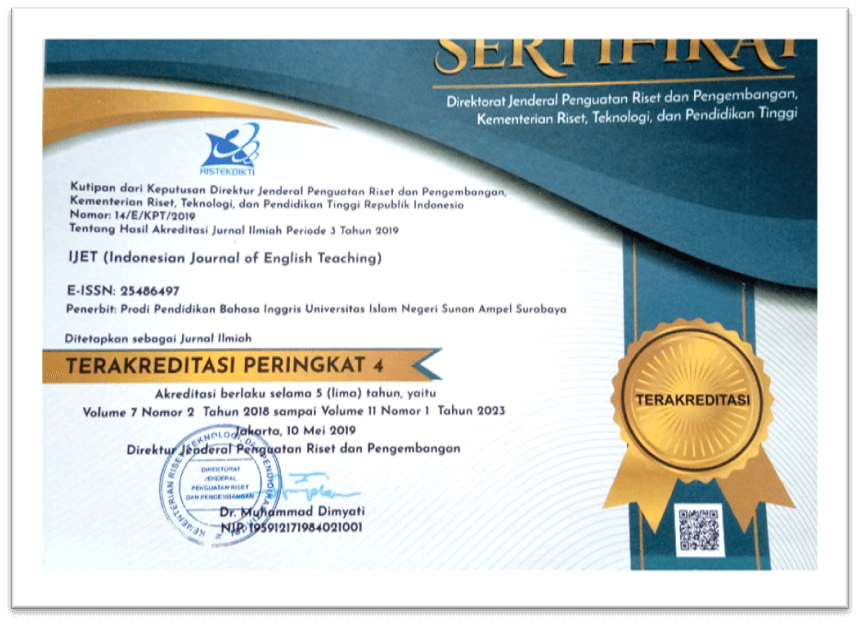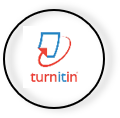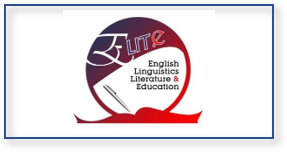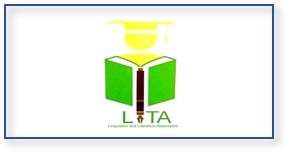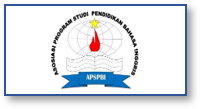Debaters perspective toward the use of Autonomous Learning
DOI:
https://doi.org/10.15642/ijet2.2022.11.1.18-29Keywords:
debater, learner autonomyAbstract
Research on the debatable topic of learning autonomy from the perspectives of the debaters is not quite new, however, further discussion is done by seeking the educational implications of autonomous learning used. Therefore, this study investigates the cases of three active debaters under the learning community in students' activity at University. The findings have focused more on how they subjectively position themselves during the learning process of becoming a good debater in the debating Community. First, they agree that the existence of mentors has created a significant difference in the growth and betterment of debater in the learning community. Second, assessment has a huge role to become the extrinsic exposure, the evaluative measurement, as well as raising up learning motivation. Third, during the learning process of becoming a good debater, autonomy can be seen as either individualistic or not depends on each individual to positioned the urge of learning.Downloads
Download data is not yet available.
References
Aclan, E. M., & Abd Aziz, N. H. (2015). Exploring parliamentary debate as a pedagogical tool to develop english communication skills in EFL/ESL classrooms. International Journal of Applied Linguistics and English Literature, 4(2), 1–16. https://doi.org/10.7575/aiac.ijalel.v.4n.2p.1
Bahrani, T., & Soltani, R. (2007). How to teach speaking. Longman, 3(2), 25–30.
Bechtoldt, M. N., Choi, H. S., & Nijstad, B. A. (2012). Individuals in mind, mates by heart: Individualistic self-construal and collective value orientation as predictors of group creativity. Journal of Experimental Social Psychology, 48(4), 838–844. https://doi.org/10.1016/j.jesp.2012.02.014
Borg, S., & Alshumaimeri, Y. (2019). Language learner autonomy in a tertiary context: Teachers’ beliefs and practices. Language Teaching Research, 23(1), 9–38. https://doi.org/10.1177/1362168817725759
Burek, D., & Losos, C. (2014). Debate: Where Speaking and Listening Come First. Voices from the Middle, 22(1), 49–57. http://proxy.libraries.smu.edu/login?url=http://search.ebscohost.com/login.aspx?direct=true&db=eue&AN=98168304&site=ehost-live&scope=site
Doody, O., & Condon, M. (2012). Increasing student involvement and learning through using debate as an assessment. Nurse Education in Practice, 12(4), 232–237. https://doi.org/10.1016/j.nepr.2012.03.002
Godwin-Jones, R. (2011). EMERGING TECHNOLOGIES AUTONOMOUS LANGUAGE LEARNING. Language Learning & Technology, 15(4), 4–11. https://doi.org/10.1046/j.1525-1438.1994.04040283.x
Hamamura, T. (2012). Are cultures becoming individualistic? a cross-temporal comparison of individualism-collectivism in the united states and Japan. Personality and Social Psychology Review, 16(1), 3–24. https://doi.org/10.1177/1088868311411587
Hay, M., & Mathers, L. (n.d.). HAY & MATHERS?: DESIGNING ASSESSMENT FOR AUTONOMOUS LEARNING Designing assessment for autonomous learning Abstract This paper aims to disseminate and evaluate an autonomous learning framework developed Introduction Autonomous learning is understood in a variety of ways . The definition of autonomous.
Kormos, J., & Csizér, K. (2014). The Interaction of Motivation, Self-Regulatory Strategies, and Autonomous Learning Behavior in Different Learner Groups. TESOL Quarterly, 48(2), 275–299. https://doi.org/10.1002/tesq.129
Korniienko, A. Y. (2020). The use of debates as an approach to deliver the course entitled “the impact of us policy on integration processes in europe in the post-bipolar era.” International Journal of Higher Education, 9(2), 321–329. https://doi.org/10.5430/ijhe.v9n2p321
Leong, L. M. (2017). An Analysis of Factors Influencing Learners’ English Speaking Skill. Internatinal Journal of Research in English Education, 34–41.
Lo, Y. F. (2010). Implementing reflective portfolios for promoting autonomous learning among EFL college students in Taiwan. Language Teaching Research, 14(1), 77–95. https://doi.org/10.1177/1362168809346509
Masouleh, N. S., & Jooneghani, R. B. (2012). Autonomous learning: A teacher-less learning! Procedia - Social and Behavioral Sciences, 55, 835–842. https://doi.org/10.1016/j.sbspro.2012.09.570
Saputra, F., & Ive Emaliana. (2016). Jambi-English Language Teaching Journal. Jambi-English Language Teaching, 1(2), 56–64.
Stiglitz, J. E., & Greenwald, B. C. (2014). Creating a learning society: A new approach to growth, development, and social progress. Columbia University Press.
Bahrani, T., & Soltani, R. (2007). How to teach speaking. Longman, 3(2), 25–30.
Bechtoldt, M. N., Choi, H. S., & Nijstad, B. A. (2012). Individuals in mind, mates by heart: Individualistic self-construal and collective value orientation as predictors of group creativity. Journal of Experimental Social Psychology, 48(4), 838–844. https://doi.org/10.1016/j.jesp.2012.02.014
Borg, S., & Alshumaimeri, Y. (2019). Language learner autonomy in a tertiary context: Teachers’ beliefs and practices. Language Teaching Research, 23(1), 9–38. https://doi.org/10.1177/1362168817725759
Burek, D., & Losos, C. (2014). Debate: Where Speaking and Listening Come First. Voices from the Middle, 22(1), 49–57. http://proxy.libraries.smu.edu/login?url=http://search.ebscohost.com/login.aspx?direct=true&db=eue&AN=98168304&site=ehost-live&scope=site
Doody, O., & Condon, M. (2012). Increasing student involvement and learning through using debate as an assessment. Nurse Education in Practice, 12(4), 232–237. https://doi.org/10.1016/j.nepr.2012.03.002
Godwin-Jones, R. (2011). EMERGING TECHNOLOGIES AUTONOMOUS LANGUAGE LEARNING. Language Learning & Technology, 15(4), 4–11. https://doi.org/10.1046/j.1525-1438.1994.04040283.x
Hamamura, T. (2012). Are cultures becoming individualistic? a cross-temporal comparison of individualism-collectivism in the united states and Japan. Personality and Social Psychology Review, 16(1), 3–24. https://doi.org/10.1177/1088868311411587
Hay, M., & Mathers, L. (n.d.). HAY & MATHERS?: DESIGNING ASSESSMENT FOR AUTONOMOUS LEARNING Designing assessment for autonomous learning Abstract This paper aims to disseminate and evaluate an autonomous learning framework developed Introduction Autonomous learning is understood in a variety of ways . The definition of autonomous.
Kormos, J., & Csizér, K. (2014). The Interaction of Motivation, Self-Regulatory Strategies, and Autonomous Learning Behavior in Different Learner Groups. TESOL Quarterly, 48(2), 275–299. https://doi.org/10.1002/tesq.129
Korniienko, A. Y. (2020). The use of debates as an approach to deliver the course entitled “the impact of us policy on integration processes in europe in the post-bipolar era.” International Journal of Higher Education, 9(2), 321–329. https://doi.org/10.5430/ijhe.v9n2p321
Leong, L. M. (2017). An Analysis of Factors Influencing Learners’ English Speaking Skill. Internatinal Journal of Research in English Education, 34–41.
Lo, Y. F. (2010). Implementing reflective portfolios for promoting autonomous learning among EFL college students in Taiwan. Language Teaching Research, 14(1), 77–95. https://doi.org/10.1177/1362168809346509
Masouleh, N. S., & Jooneghani, R. B. (2012). Autonomous learning: A teacher-less learning! Procedia - Social and Behavioral Sciences, 55, 835–842. https://doi.org/10.1016/j.sbspro.2012.09.570
Saputra, F., & Ive Emaliana. (2016). Jambi-English Language Teaching Journal. Jambi-English Language Teaching, 1(2), 56–64.
Stiglitz, J. E., & Greenwald, B. C. (2014). Creating a learning society: A new approach to growth, development, and social progress. Columbia University Press.
Downloads
Published
2022-07-31
How to Cite
Merbawani, G. W. (2022) “Debaters perspective toward the use of Autonomous Learning”, IJET (Indonesian Journal of English Teaching), 11(1), pp. 18–29. doi: 10.15642/ijet2.2022.11.1.18-29.
Issue
Section
Articles


